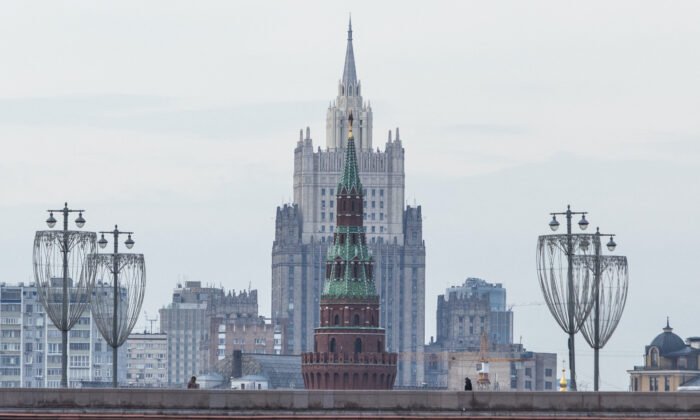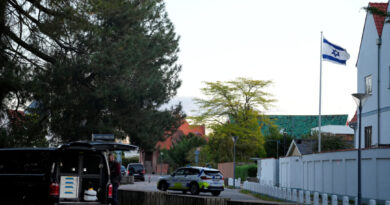Moscow Expresses Outrage as Moldova Expels Russian Diplomat in Pro-West Move
The expulsion was reported following Moldovan authorities detaining two officials suspected of spying for a foreign country.
Moscow has criticized Moldova’s decision to declare a Russian diplomat as “persona non grata” without clear reasons.
He further mentioned that Moscow would respond proportionately to the diplomat’s expulsion during a conference in Chisinau, Moldova’s capital.
Earlier, on the same day, Mr. Vasnetsov was summoned by Moldova’s foreign ministry and informed about an unnamed Russian Embassy official labeled as a “collaborator.”
The foreign ministry issued a statement declaring the official “persona non grata” and demanded their departure from Moldova.
Mr. Vasnetsov later confirmed that an assistant military attaché at the Russian Embassy in Chisinau had been asked to leave the country within a specified deadline.
The ambassador expressed his discontent with the lack of mutual understanding and cooperation between the two countries.
Meanwhile, Russia’s foreign ministry pledged to retaliate against this action.
This expulsion is not the first instance of Moldova expelling Russian diplomats from its territory.
Last year, 45 Russian Embassy employees were expelled over allegations of involvement in spying activities, a claim refuted by Moscow.

‘Anti-Russian Sentiments’
The reported expulsion of the diplomat followed the detainment of two Moldovan officials – a parliamentary employee and a border police officer – the previous day on suspicion of treason.
Judicial officials in Moldova suspect that the pair leaked critical information to a foreign country.
In a statement on July 31, the Moldovan prosecutor-general’s office mentioned that the suspects collaborated with an employee of a foreign embassy, without specifying which embassy.
“The priority now is to ensure that this act of treason is penalized,” stated Moldovan President Maia Sandu in her televised address.
The Russian Embassy condemned the arrests and the implication of their involvement as part of an agenda to foster anti-Russian sentiments in Moldova.
Ms. Sandu, known for her pro-Western stance, has been a vocal supporter of Moldova’s integration into the EU and has condemned Russia’s actions in Ukraine.
Under her leadership, Moldova has stood firmly by Ukraine against the Russian invasion.
Accused by Russian officials of undermining Moldova’s historical ties with Russia, Ms. Sandu has an upcoming presidential reelection bid in October.
Russian officials have criticized her for aligning Moldova with the West, raising concerns over the country’s sovereignty, security, and socio-economic status.
He warned that such a policy could have adverse effects on Moldova and its citizens.

The Transnistria Factor
The situation is further complicated by the presence of around 1,500 Russian troops, referred to as peacekeepers by Moscow, in Moldova’s breakaway region, Transnistria.
Transnistria, a small enclave in Moldova’s east, separated from the country in 1991 after the USSR’s dissolution and has since been under Moscow’s administration.
Although not internationally recognized as independent, Transnistria is part of Moldova.
Transnistria’s leader, Vadim Krasnoselsky, expressed willingness to hold discussions with Chisinau to resolve disputes while opposing the replacement of Russian troops with international peacekeepers.
Stressing that Transnistrians support the current Russian peacekeeping efforts, Mr. Krasnoselsky believes the dispute with Chisinau is ongoing.
He affirmed that Transnistria has no intention of joining the EU along with Moldova.
Despite a Russian referendum in 2006 showing overwhelming support for independence, Moldova and most Western nations have not acknowledged the results.
Reuters and The Associated Press contributed to this report.





